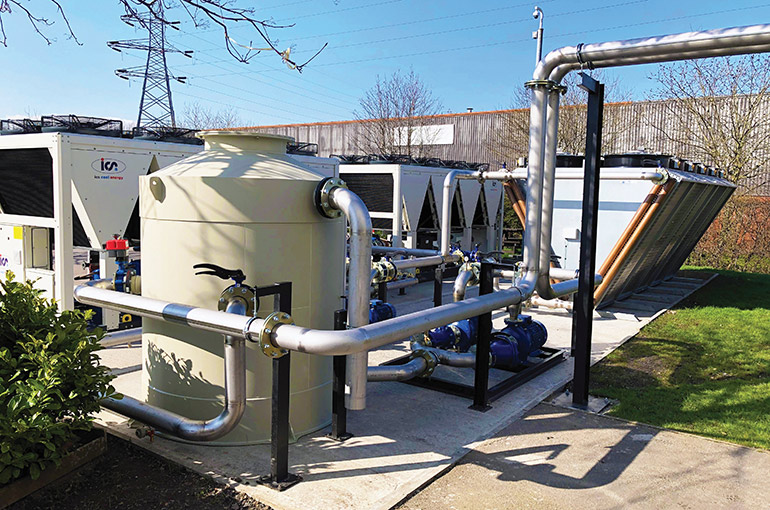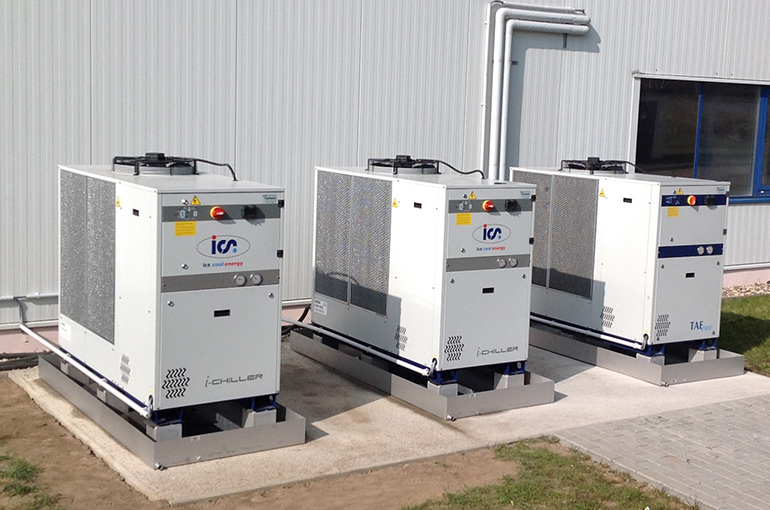04 September 2024
|
Dave Palmer, General Manager for the UK at ICS Cool Energy, on how to run the latest, most efficient and technically up to date temperature control equipment without the need of capital investment.
Process cooling and heating play a crucial role in manufacturing, directly influencing overall operational efficiency, cycle times, and product quality. These systems are integral to production and should not be taken lightly. Typically, however, they require a substantial upfront investment and are treated as fixed assets or fixed costs. Moreover, in today's rapidly changing business landscape manufacturers frequently scale up and down, and cooling and heating needs follow suit. The static nature of a fixed, installed asset and investment often poses challenges for manufacturers in the evolving and dynamically changing markets.
It is clear that with rising energy prices, improving energy efficiency of manufacturing operations can provide real savings, ensure superior process performance and real financial outcomes. Constant innovation in process cooling and heating systems has led to innovative designs that offer significant performance and environmental benefits compared to systems that they are designed to replace. Unfortunately, capital expenditure budgets are often put on hold, or placed under increased scrutiny. This turns the attention to the traditional alternative to capital investment in a way of purchasing and installing new equipment - hire.
Maintaining financial equilibrium
Hiring equipment means its associated costs can be kept off the balance sheet as the equipment doesn’t technically belong to the business. This can go a long way to finding a fast solution, especially when budgets are tight. Hiring equipment avoids capital expenditure which is an attractive option for businesses lacking the funds for large upfront costs of equipment. What’s more, hire packages tend to cover the cost of maintenance and repairs (in most circumstances). All in all reducing the burden on businesses, allowing to allocate their financial resources to other critical areas.
But what about the agility to adapt and scale operations to meet changing or seasonal demands? What about adopting innovation and new technologies coming into the market?

Along with the traditional long-term hire, there are now more flexible options, which not only take into account that manufacturing needs can fluctuate due to seasonal variations, market demands, or unexpected events but also that innovation and new technologies change quickly. A membership or subscription type of a long-term rental agreement offers access to the latest temperature control technology, maintenance, and equipment exchange or upgrade– all with the flexibility of an operating expense.
Agility, scalability, access to the latest technology and tailored support
This type of complete temperature control packaged solution can include new equipment vs. existing rental stock units, preventative and 24/7 emergency maintenance, replacements and upgrades. The elements of the all-inclusive, monthly rate contract are tailored to the business’ needs and based on a detailed assessment by the service provider’s engineers.
Manufacturers get bespoke systems installed– with no upfront cost and capital investment – and only pay for the temperature control they need and when they need it.
Additionally, unlike in the case of traditional long-term hire, they benefit from the flexibility to exchange and upgrade the equipment as the requirements change or technology improves. All this with the peace of mind of complete maintenance and contingency plans - crucial for optimal performance, minimising downtime, and preventing costly repairs.
By opting for flexible temperature control hire solutions, businesses can reduce the risks associated with equipment ownership. Equipment breakdowns or failures can have severe consequences, leading to production delays, lost revenue, and reputational damage. Included contingency plans give access to backup equipment and rapid response times ensuring that manufacturers are well-prepared to handle unexpected events, minimising their impact on operations.
Environmental sustainability
Beyond cost savings and efficient management, flexible approach to temperature control hire also contributes to sustainability efforts. By adopting the latest, designed for energy performance, and more environmentally friendly temperature control systems, manufacturers can contribute to their sustainability goals by promoting energy efficiency and reducing carbon emissions.
Conclusion
More often than not, our customers are interested in the subscription, membership type of a long-term rental agreement. With benefits ranging from cost efficiency to tailored solutions, equipment upgrades and energy savings, membership subscription options like our ICS Flex ensures that manufacturers can keep meeting their temperature control needs efficiently, worry free and stay ahead in the market.









